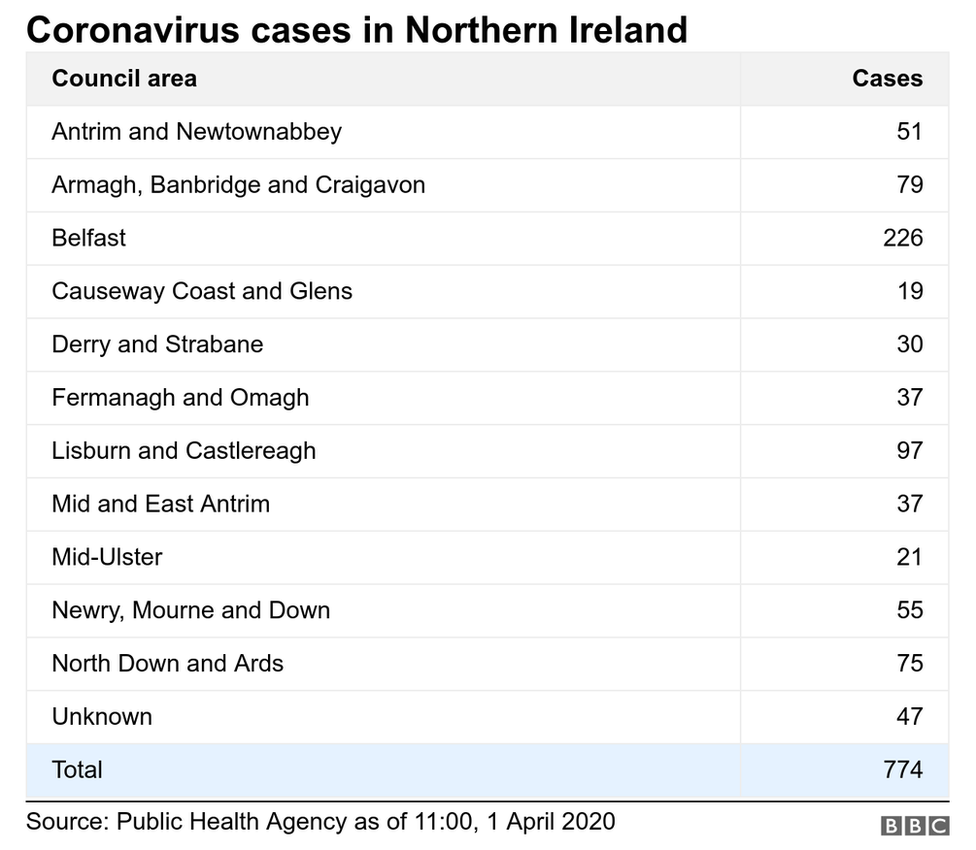Coronavirus: Six more people die with Covid-19
- Published
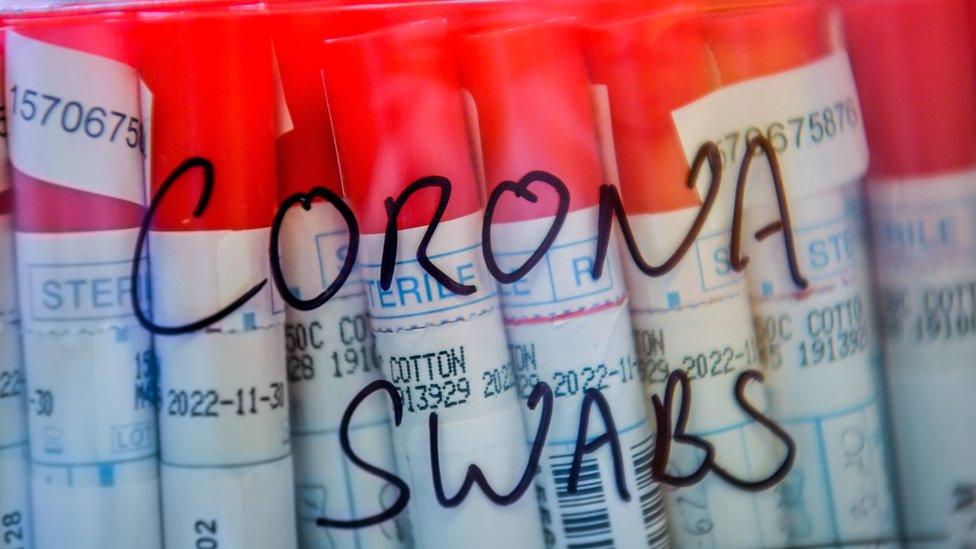
Another six people have died in Northern Ireland after testing positive for Covid-19.
The total number of coronavirus-related deaths in Northern Ireland is now 36.
The Public Health Agency says there have been 449 tests carried out for the virus in the past 24 hours.
A further 85 people have tested positive, bringing the total number of cases here to 774 - a 12% rise. In the UK, 2,921 people (out of nearly 34,000 who tested positive) have died.
Northern Ireland's latest figures bring the total number of coronavirus tests carried out to 6,899 amid calls for testing to be ramped up.
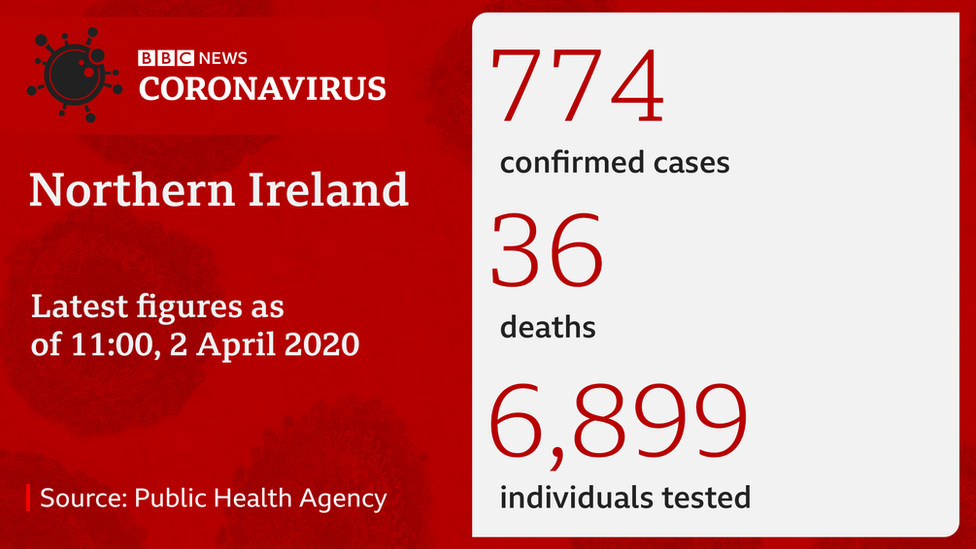
NI health officials have said they expect to hit the peak number of cases between 6 and 20 April.
The Department of Health in Dublin has announced a further 13 deaths linked to Covid-19, as well as 402 new cases.
It brings the total number of deaths in the Republic of Ireland to 98.
There are now 3,849 confirmed cases in total.
Belfast City Hospital is being transformed into Northern Ireland's first Nightingale hospital as part of the Department of Health's latest surge plans.
It will become a 230-bed unit for critically ill patients, staffed by a team drawn from across Northern Ireland.
Health minister Robin Swann said testing centres were being prepared at the SSE arena in Belfast and MOT test centres.
According to the Public Health Agency figures, the most tests have been carried out by the Belfast health trust (2,639), followed by the South Eastern trust (1,550), Southern trust (1,111), Northern trust (701), Western trust (677) and the Northern Ireland Ambulance Service (80).
Most of the positive results were recorded in Belfast (226), followed by Lisburn and Castlereagh council area (97) and Armagh, Banbridge and Craigavon council area (79). The fewest recorded positive cases are in the Causeway Coast and Glens council area (19).
Men and woman are equally represented among those who tested positive, and there was a spread of age ranges: 32% of those who tested positive were younger than 45, 40% were between 45-69 years and 28% were 70 or older.
Earlier, the Stormont Health Committee was told that getting equipment to protect healthcare workers from coronavirus was "challenging".
The chief executive of Northern Ireland's largest health trust said its work force was down 10% due to staff self-isolating.
Cathy Jack from Belfast Health and Social Care Trust told the Stormont health committee: "I have 1,200 staff that are self-isolating because of a family member that has been symptomatic."
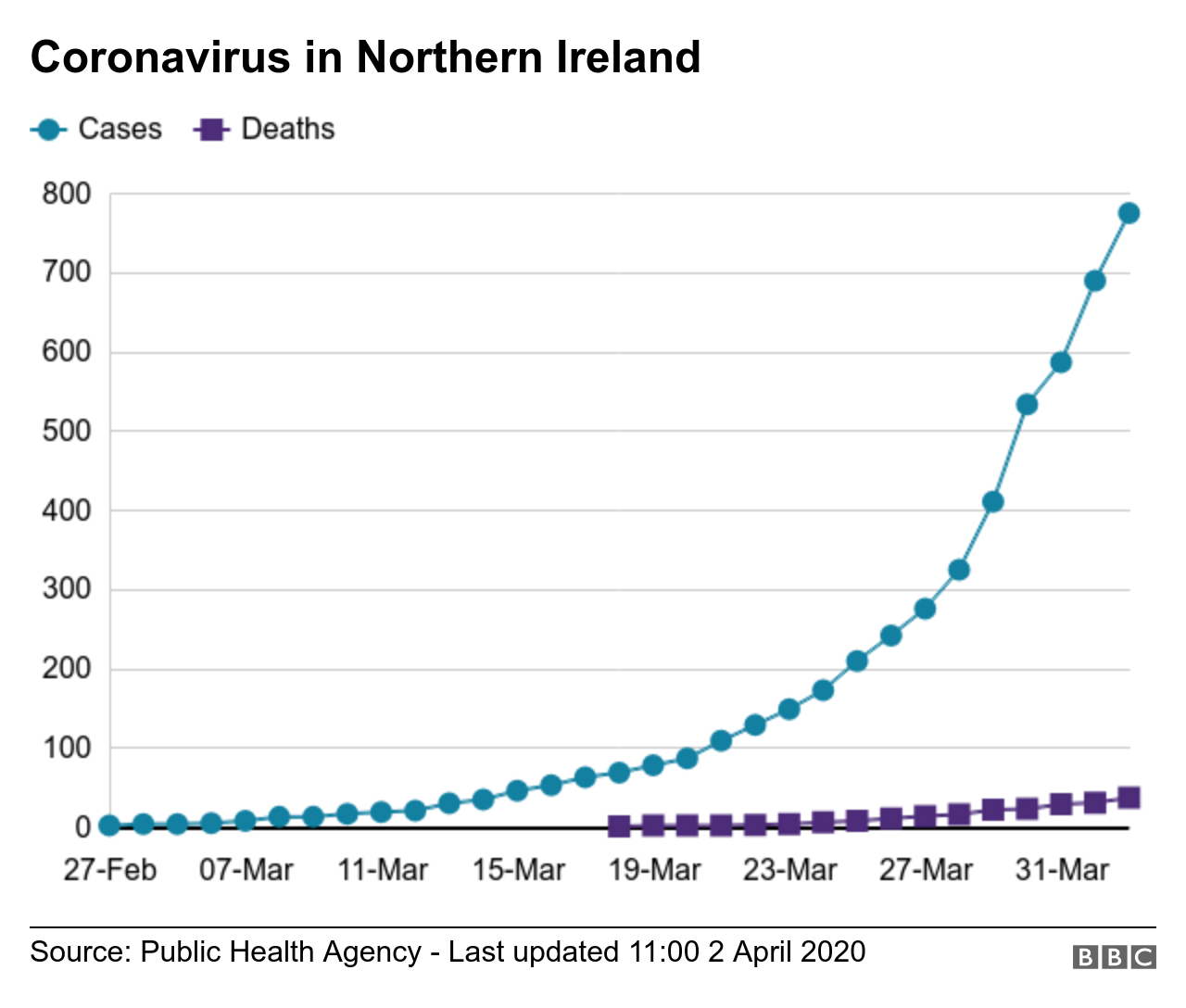
"I have 791 staff that are self-isolating because they are symptomatic, so that's just under 2,000 staff and that's nearly 10% of my workforce."
Dr Jack said she was concerned about a lack of masks.
While there are sufficient stocks of surgical or fluid masks, aprons and gloves, she said, specialist equipment such as FFP3 masks was more difficult to procure.
The trust got less than expected from a recent delivery, and individuals required training in how to properly fit this equipment on their faces, said Dr Jack.
Dr Jack added she had been overwhelmed by the generosity of the public and that all charitable donations, including masks and scrubs, were being channelled through one person, so they could be evenly distributed.
'Challenging' testing
Health Minister Robin Swann agreed getting the right personal protective equipment (PPE) to the right people was an issue.
He told the health committee testing for the virus was "challenging", and that Northern Ireland's approach had three strands:
For those who have been admitted to hospital with symptoms
For people in care homes
For healthcare workers
Mr Swann said 387 tests were carried out on healthcare workers on Monday.
On Wednesday, officials warned Northern Ireland could see 3,000 deaths in a "first wave" of the coronavirus pandemic over 20 weeks.
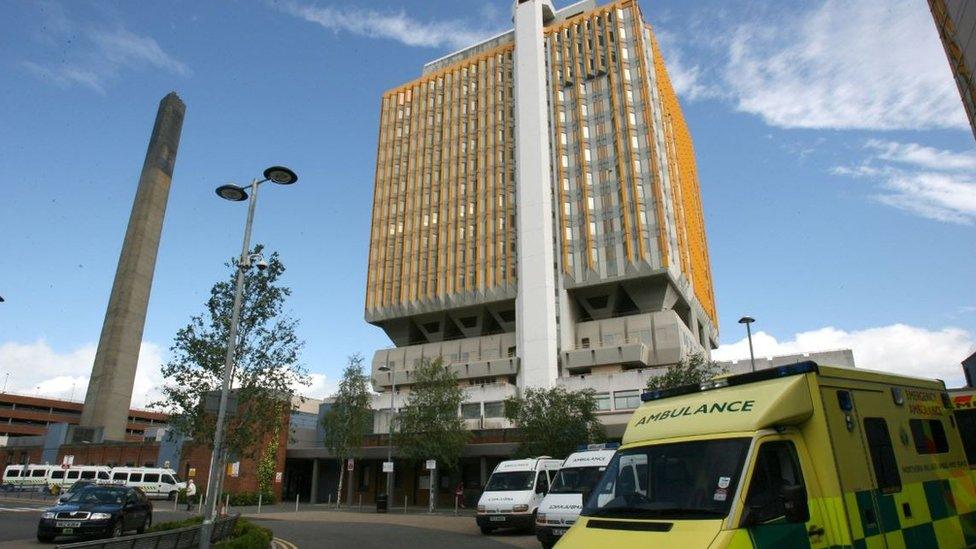
The distinctive tower block will become a 230-bed unit staffed by a team drawn from across Northern Ireland
Expert modelling also indicated there could be second wave later in 2020 in the absence of a vaccine or sufficient population immunity.
Based on local data, the model sets out a "reasonable worst-case scenario", which assumes a two-thirds reduction in contacts due to social distancing and 70% of those with symptoms self-isolating.
Under these circumstances, the study suggests the peak hospital admissions would be around 500 per week.
It also indicates that 180 patients would need ventilation.
Northern Ireland has 165 ventilators and Chief Medical Officer Michael McBride said there was a further batch of the machines expected from a UK allocation, while more had been ordered from a company in Galway.
A further 650 units capable of providing respiratory support are also being procured.
For patients with the worst effects of the infection, a ventilator offers the best chance of survival.
Meanwhile:
Almost 200 members of staff within the NI Prison Service - nearly a quarter - are self-isolating because of Covid-19, Director General, Ronnie Armour has said
About a third of community pharmacy staff across Northern Ireland are self-isolating, amid calls for more protective equipment for pharmacy workers
A further 14 patients have died in the Republic of Ireland, bringing the total number of deaths there to 85
